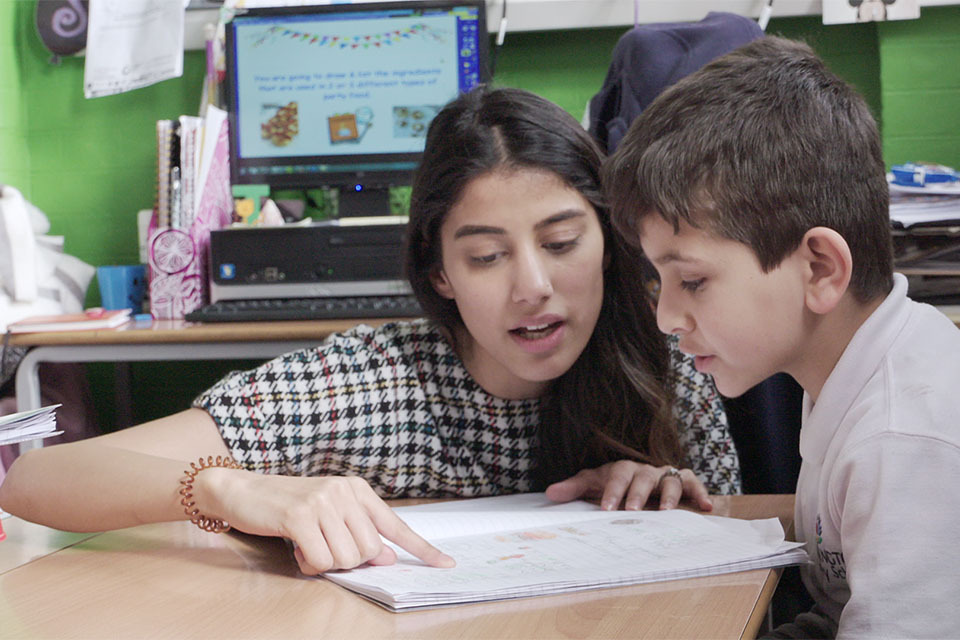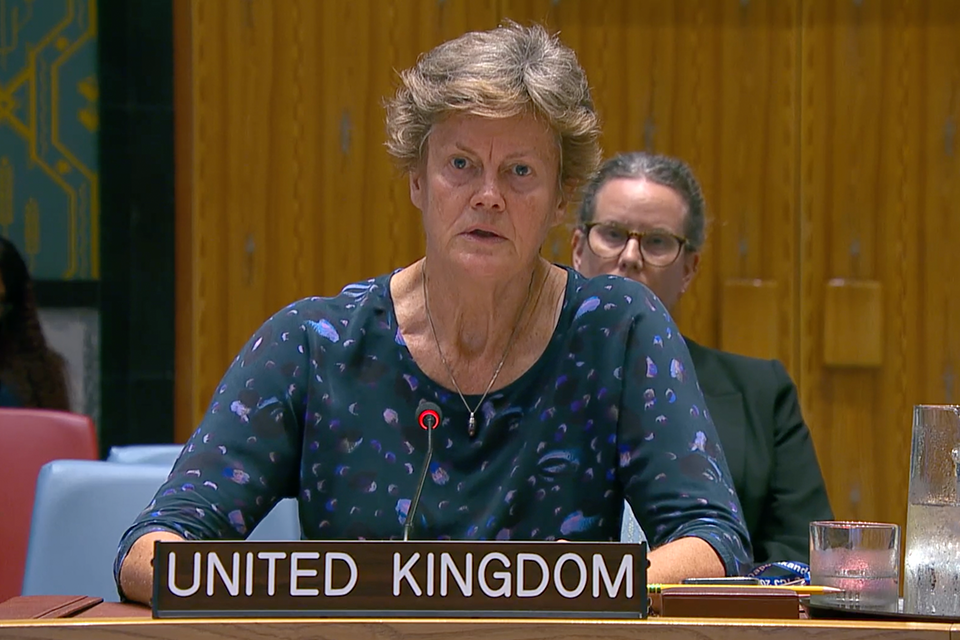Up to 20,000 more children are set to benefit from earlier targeted support to overcome speech and language challenges before concerns escalate, as the government ensures every child gets the best start in life through its Plan for Change.
Backed by £3.4 million this year, the Early Language Support for Every Child (ELSEC) programme deploys specialist teams across primary schools and early years settings, helping to identify and respond to speech and language needs, particularly for children with SEND.
Developmental delays have been a growing issue since the pandemic, with more than 40,000 children waiting over 12 weeks for speech and language therapy as of June 2024.
It is particularly prevalent for children with SEND as numbers have skyrocketed from 1.3 million in 2020 to 1.67 million in 2024 – with one in four of these children requiring additional help to overcome difficulties listening, understanding and talking.
A lack of early identification can have a devastating impact on development, social skills, attendance, and academic attainment for all children – holding them back from progressing in school and life.
This is seen by the staggering rise in children requiring specialist support, with the number of children on Education Health Care Plans escalating from under 250,000 in 2015 to over 575,000 in 2024.
The ELSEC programme paves the way for a reformed SEND system that embeds earlier intervention and targeted support, enabling children to thrive at their mainstream school and making sure all children have the best start in life.
Minister for School Standards, Catherine McKinnell said
When challenges with speech and language go unnoticed, it can have a devastating impact on children’s attainment, attendance, social abilities and future life chances.
ELSEC is turning this around for so many pupils – and particularly those with SEND – helping them find their voice and thrive at school and with their friends and family.
This type of approach is exactly what we want to see in a reformed SEND system that delivers the support children need at the earliest stage and restores parents’ trust in a system which has let them down for too long.
Minister for School Standards, Catherine McKinnell visited Hasmonean primary school in Barnet, which has been part of the ELSEC programme since January, and observed a small group intervention in one of the school’s calming environments. The activity focused on developing children’s social communication skills by engaging the children’s attention, promoting interaction and vocabulary, and making learning and communication fun.
Head of Early Years and SEN Support at Hasmonean Primary School, Jemma Brahams, said
The ELSEC team first trained me on how to run a small group intervention for our pupils who are experiencing speech and language difficulties. The team was there to help me from the start and was always available as I got used to implementing the approach.
The training provided on these interventions has been huge for us, as we now don’t need to wait for anyone to come into the school or go on any waiting lists – we can just take it forward straightaway. In fact, I’m now able to train other staff members in the school to deliver intervention groups, so we can have it running frequently and across different year groups.
The impact on our pupils’ development has been really positive too. As the activity is creative and interactive, it supports the children’s speech and language development, concentration and attention – we’ve seen so much progress.
Parent of Raphael at Hasmonean Primary school, Deborah, said
Raphael is 4 and did not speak until recently, he only made noises which was so frustrating for him, but with interventions he has progressed amazingly.
With 3-4 interventions a week he has massively grown in confidence, he is communicating with his friends and expressing himself more than ever – we are now hopeful that Raphael can go to Reception in September which was not an option a few months ago!
This programme has been so impactful for my son and it is amazing to see the work being done for children like Raphael.
Communication needs can manifest itself in a number of ways, including physically through stuttering and issues putting sentences together, as well as difficulty understanding words.
As part of the ELSEC programme, Speech and Language Therapy Assistants become part of the fabric of the school, working across numerous settings in their area to assist pupils aged 2-11 years old who need help with their language skills – whether that’s universal support for the whole class, or specialist 11 help for pupils with intensive needs.
Staff are taught to use characters and games to boost engagement and improve expression in ways that children can understand.
This support can also have a huge impact on children’s wellbeing at school, and as a result, their attendance. Last year, SEN children in primary school with Speech Language and Communication Needs (SLCN) as a primary need missed almost a week more of school than children without SEND.
Jointly funded by NHS England, ELSEC has already supported over 200 early years and primary school settings, trained over 3,000 setting staff and provided support to just over 20,000 pupils so far since launching in 2023.
Clinical Coordinator in Barnet’s ELSEC team, Georgia Roskin, said
It can be very easy for teaching staff to identify children with significant needs but the children with mild-moderate needs often get missed, which can sadly cause long-term speech and language difficulties, and poorer outcomes.
That’s why when we first partner with a setting, we train teaching staff to screen every single child, which assures us (and parents!) that no children go undetected.
We work intensively within a setting for six weeks, helping to identify pupils who may need support, while also upskilling the school staff on different interventions and teaching approaches they can adopt. We then stay in regular contact, coming back into the setting every couple of months to see how they’re getting on and address any new concerns.
NHS National Director for Primary Care and Community Services, Dr Amanda Doyle, said
It is vital that children with speech, language and communications needs get access to support as early as possible, to help give them the best start in life.
That’s why the NHS is working closely with the Department for Education and early years and primary school settings to transform the way children access support, enabling them to get the right care at the right time.
Chief Executive of the Royal College of Speech and Language Therapists, Steve Jamieson, said
We’re delighted that the Department for Education and NHS England will fund the Early Language Support for Every Child programme until March 2026.
It has shown that when speech and language therapists, therapy support workers and education staff work together, they can identify children’s needs earlier and put timely support in place.
Providing early intervention for children’s speech, language and communication needs can improve their wellbeing, development, and educational attainment. The extension of the funding means more children will benefit from this important programme.
ELSEC forms one part of the government’s work testing SEND reforms through a reformulated Change Programme focused on early intervention and support in mainstream schools.
Local areas will also test how children in so-called alternative provision – for children who have been excluded or have behavioural needs – can get the right support to return to mainstream provision.
This includes by supporting the expansion of Alternative Provision Specialist Taskforces (APST) – multi-agency teams, including SEN specialists, youth workers, and mental health practitioners, working in AP settings, with mainstream schools to provide holistic support and ensure more children receive the right support to achieve and thrive.





